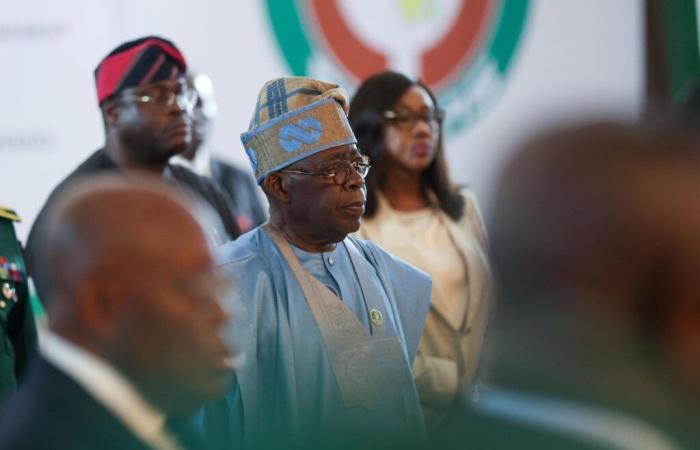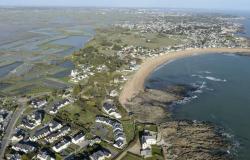
The President of Nigeria, Bola Tinubu, is expected on Thursday November 28 for a two-day state visit to Paris, the first in almost a quarter of a century.
This “return” visit, six years after that of the French head of state in Abuja, embodies France's desire to diversify its economic partnerships in Africa, beyond the French-speaking West African countries, and to move away from “all- safe.”
“France wants to escape the weight of colonial history and the difficulties encountered in its privileged area of influence”estimates Jonathan Guiffard, researcher at the French Institute of Geopolitics and the Montaigne Institute. “Our relationship with Africa is not limited to the Sahelexplains a source close to the matter. Today, our relations with Burkina Faso, Mali and Niger are almost non-existent. We are trying to circumscribe and act elsewhere. »
“All-round partnerships”
Since his first mandate, Emmanuel Macron has traveled to around twenty African countries, including many non-French-speaking territories such as Ghana (2017), Nigeria (2018), Ethiopia (2019) and South Africa (2021). “For ten years, we have developed all-round partnerships, in line with the “renewal” of relations with Africa”says a French diplomatic source. Indeed, France's first trading partners in Africa, Nigeria and South Africa, are not French-speaking.
The most populous country in Africa, 3rd GDP on the continent, Nigeria attracts 65% of foreign direct investments (FDI) from France in West Africa. In addition to the oil sector, where the TotalEnergies group is well established, the hundred or so French companies invest in the agri-food industry, the pharmaceutical industry, insurance, as well as the film and music industries, vectors of dialogue.
In a country where 70% of the population is under 30, French companies, which employ some 20,000 Nigerians, are banking on youth. Thus, Danone has created professional training institutions.
More timid, Nigerians are also starting to invest in France. Four Nigerian banks are already established in Paris.
” At the same time “
If the partnership with Nigeria puts the economy and culture at the forefront, the political and strategic aspect remains. “Abuja and Paris share interests, particularly with regard to the stability of the sub-region, marked by a degraded political situation in the Sahel and Russian entryismexplains Jonathan Guiffard. After the coup in Niger and the confrontation with ECOWAS that followed, Nigeria became a pivotal partner in positioning vis-à-vis the juntas. In addition, the country, faced with Boko Haram in the North, is responding to anti-terrorism issues. »
And “political cooperation with Nigeria is thus more substantial than with other English-speaking countries in East Africa”the researcher sees “the beginning of expansion towards non-French-speaking African countries”.
The Minister of Foreign Affairs, Jean-Noël Barrot, chose Ethiopia for his first visit to sub-Saharan Africa. He will be in Addis Ababa on Friday. Emmanuel Macron must go to Angola in early 2025, without the date having yet been set. Still with this in mind, the next Africa-France summit will take place in Nairobi in 2026, a first in a non-French-speaking country.
However, if this relationship with Nigeria embodies the “new partnership approaches” desired by Paris, the road is still long.
“The desire is there, but the majority of French interests, whether political, economic or even intrapersonal, remain in West Africa”observe Jonathan Guiffard. “We are exploring other geographies while renewing our relations with French-speaking countries,” explains the source close to the file.





